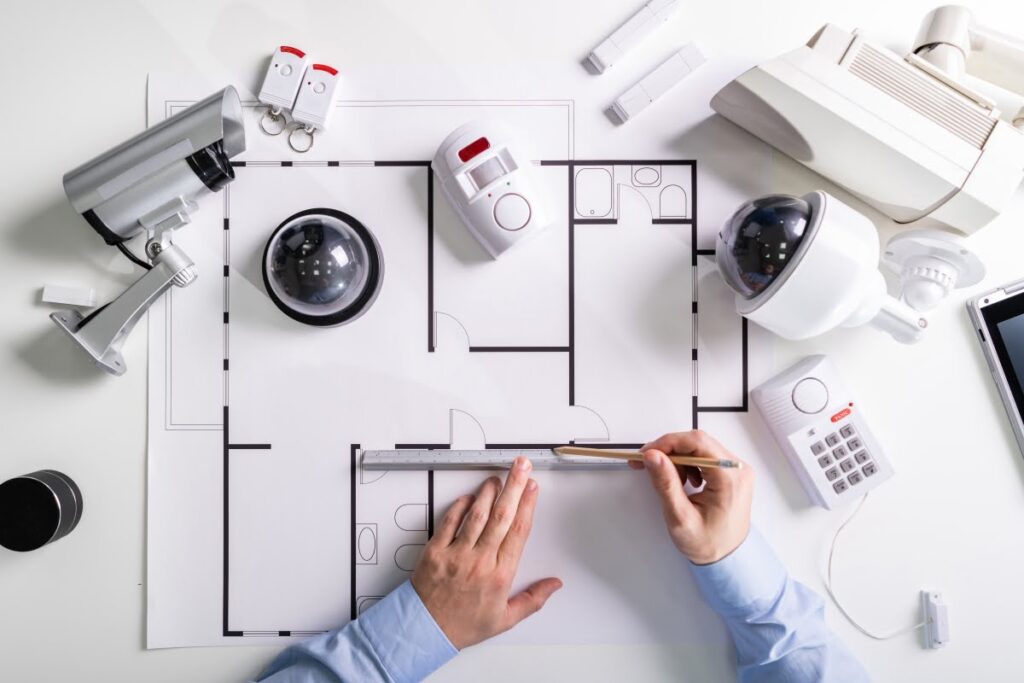How Business Security Systems Protect Your Bottom Line
In today’s fast-paced business environment, ensuring the safety and security of your assets is paramount. Business security systems are not merely an extra expense; they are a fundamental aspect of a well-rounded strategy to protect your organisation’s interests and, importantly, to safeguard your bottom line.
Understanding the Importance of Business Security Systems
Security is an essential component of any successful business operation. From protecting physical assets to safeguarding sensitive information, the role of security cannot be overstated. When businesses invest in sound security systems, they create a safe atmosphere where employees can focus on their work without the looming threat of theft or breach of data.
Moreover, security systems instil confidence in both employees and customers. A secure environment encourages improved productivity, as staff can concentrate on their tasks rather than worrying about potential risks.
The Role of Security in Safeguarding Your Business
The primary role of any security system is to protect against threats. This could range from unauthorised access to your premises to protecting against cyberattacks. By implementing robust security measures, businesses can deter potential criminals and create a physical and digital fortress around their assets.
Moreover, these systems not only protect tangible items but also preserve the integrity of operations. For instance, preventing data leaks can save a business from reputational damage and financial losses. Thus, investing in a business security system becomes a crucial part of a company’s long-term strategy.

The Financial Implications of Inadequate Security
On the flip side, neglecting security can have severe financial ramifications. The fallout from theft, vandalism, or data breaches can lead to significant monetary losses. According to various studies, businesses with inadequate security are more vulnerable to incidents that can drain organisational resources, both directly and indirectly.
Furthermore, the cost of recovering from these events often far exceeds the initial investment in security measures. Companies may face legal fees, fines, and a tarnished reputation, all of which can lead to decreased revenue and lost clients.
The Different Types of Business Security Systems
When it comes to security, options abound. Understanding the various types of security systems available can help businesses make informed decisions tailored to their specific needs.
Physical Security Systems and Their Benefits
Physical security measures include surveillance cameras, access control systems, and alarm systems, to name a few. These systems act as a deterrent to criminal activity while also providing a means of monitoring and responding to incidents in real-time.
The benefits are tangible; businesses that employ physical security systems often notice reduced instances of theft and vandalism. Not only do these measures prevent incidents, but they also reassure employees and customers that their safety is a priority.
Digital Security Systems and Their Role in Business Protection
In an age dominated by technology, digital security systems play an equally vital role. These include firewalls, antivirus software, and data encryption tools that protect sensitive information stored online.
As businesses increasingly become targets for cybercriminals, fortifying digital assets has never been more important. Implementing state-of-the-art cybersecurity measures can help protect not just the organisation’s own data, but also that of its clients, thereby enhancing trust and loyalty.
How Security Systems Directly Impact Your Bottom Line
The investment in security systems invariably ties back to the bottom line. When businesses are secure, they operate more effectively and efficiently, reducing various forms of loss that can spiral into larger financial issues.

Reducing Theft and Losses with Robust Security
Robust security systems have been shown to significantly reduce theft and losses. When employees and customers feel safe, it fosters both a positive working environment and remarkable customer loyalty. In turn, this translates to steady sales and ultimately makes a direct positive impact on the bottom line.
The cost savings from preventing theft can be substantial. For many companies, the money saved on potential losses quickly justifies the initial investment in security systems.
Enhancing Productivity Through a Secure Environment
A secure environment enhances productivity in many ways. When employees do not have to constantly worry about their safety or the security of the premises, they tend to perform better. Increased productivity leads to improved service delivery and higher profits, thereby supporting the overall growth of the business.
Additionally, when customers perceive a business as secure, they are likely to spend more time there, translating into higher sales and customer retention rates. A safe environment thus becomes a cornerstone for business success.
Investing in the Right Security System for Your Business
Choosing the right security system is no small feat. It requires consideration of various factors to ensure that your investment aligns with your business needs.

Factors to Consider When Choosing a Security System
When evaluating security systems, businesses must consider aspects such as the size of the establishment, the nature of the operations, and potential risks specific to the industry.
- Evaluate your vulnerabilities by conducting a risk assessment.
- Consider the level of monitoring required – do you need 24/7 surveillance?
- Assess the scalability of the system for future growth.
Determining these factors early on can help streamline the decision-making process, ensuring your security system accommodates any changes that may occur in the business.
The Cost Versus Benefit Analysis of Security Systems
Understanding the financial implications of security investments is crucial. A thorough cost-benefit analysis will often reveal that the long-term gains of having a reliable security system far outweigh the initial financial outlay.
In most cases, businesses discover that the money saved from preventing losses, along with the benefits of an increased productivity level, more than compensate for the cost of implementing a sound security system.
The Future of Business Security Systems
As technology continues to evolve, so too does the landscape of business security. Staying updated on emerging trends can help businesses remain proactive in their security measures.
Emerging Trends in Business Security
One of the most notable trends is the integration of smart technologies, such as AI-powered surveillance cameras and automated access controls. These advancements not only enhance security but also streamline operations, allowing business owners to monitor their assets from virtually anywhere.
Moreover, the move towards cloud-based security systems offers increased flexibility and scalability. Such systems allow businesses to adapt their security measures as their operations grow or change.
How Evolving Technology is Improving Security Systems
With the rapid pace of technological advancements, security systems are becoming more effective and efficient. For instance, machine learning algorithms can now predict potential security threats before they occur, enabling preemptive action.
Additionally, improvements in data encryption are making digital security systems more robust, thereby enhancing the overall safeguarding of sensitive information. As technology evolves, businesses that adapt to these changes will not only enhance their security but also contribute to improved overall business performance.
Related: Top Home Security Solutions for Australian Families

